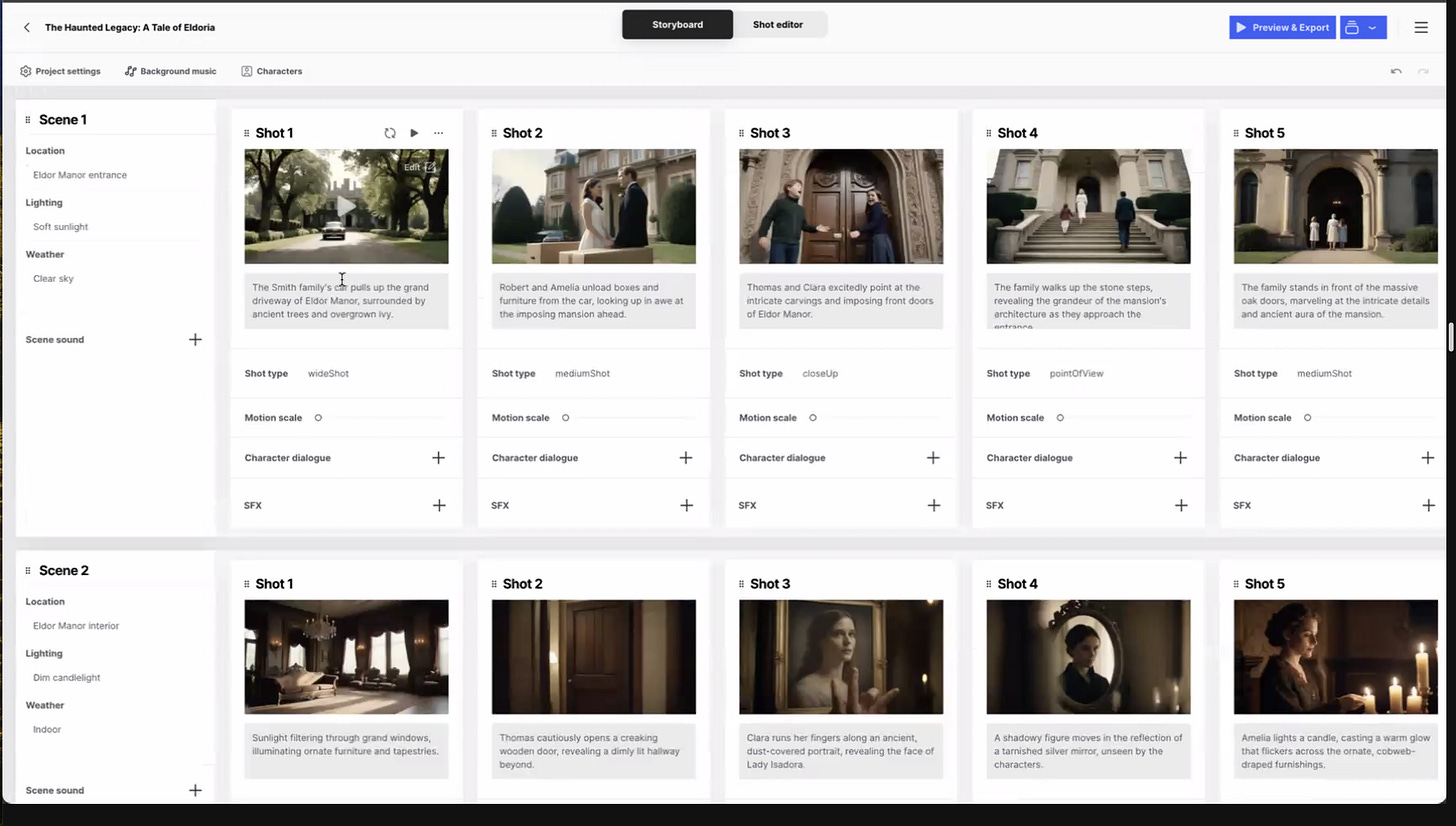Lightricks to Transform Filmmaking With Generative AI Video Platform LTX Studio
Best known for its AI-powered image and video editing apps, Lightricks is taking a much bolder and more ambitious step with the launch of LTX Studio, a generative AI text-to-video platform that will make it easy to produce slick-looking videos using prompts and a no-code interface. Creative teams can conceivably use the platform to generate an entire movie, without the need for a traditional studio, editing techniques or human actors and actresses.
Lightricks is the creator of popular mobile applications such as Facetune, Photoleap and Videoleap, but the upcoming launch of LTX Studio shows that it’s now heading in a new direction, joining the fray of AI juggernauts such as OpenAI, Google and Meta Platforms in the race to take professional-grade generative video tools into the mainstream.
LTX Studio is currently available via a pre-launch preview, and the startup is inviting users to sign up to its waitlist ahead of a much wider rollout of the full platform in March.
The new, web-based platform is all about making life easier for creators, helping anyone to master the art of storytelling through an intuitive UI that promises to bring their creative ideas to life. The platform is powered by generative AI technology, which transforms the user’s ideas into slick video content, which can then be edited in numerous ways so the creator can perfect their vision.
Announcing the product, Lightricks says the platform marries generative AI with its years of experience in building powerful editing tools for consumers and creators. By doing this, LTX Studio can produce cohesive and consistent visual stories, with the creator having full control over everything from the script to the camera angles to character creation and more.
For someone who’s first getting to grips with LTX Studio, the experience starts with the ideation process. They simply tell it about what they’re trying to create, and the platform will transform these ideas into visual concepts. From there, the user progresses to the Storyboarding and Scene Planning stage, with generative AI helping to organize and sequence the narrative and the setting.
Once done, the next step involves customizing the characters in the movie, altering their looks, voices, the audio, the background and so on, until the desired effect has been achieved. LTX Studio’s UI promises to help creators do all of this much faster than was previously possible.
What LTX Studio is offering sounds impressive, and Lightricks Co-founder and CEO Zeev Farbman believes it will completely change the way creators, filmmakers, studios and marketers produce videos. “The visual stories made by the filmmakers and creators that we selected to first test LTX Studio are deeply inspiring, and demonstrate the powerful capabilities of our new product,” he said in a statement.
That said, Farbman is surely well aware that his company is entering an increasingly competitive arena. Text-to-video is fast emerging as the next battleground in the generative AI space.
While Lightricks has already seen success with AI-generated video in its Videoleap app, LTX Studio is going up against companies such as Runway.ai and Pika Labs, who have already rolled out AI video creation tools.
ChatGPT creator OpenAI, which recently announced a text-to-video generation tool called Sora, is another determined competitor, though it’s not clear when that tool will launch publicly. Others, including Google (Lumiere), Meta Platforms (Emu), Amazon, Stability AI (Stable Video Diffusion) and Elon Musk’s startup xAI are also believed to be working on their own text-to-video generation platforms, although Lightricks appears to have a head start on turning algorithms into an interface useful to filmmakers.
This expertise means it can offer a video creation tool with much greater functionality than many of its rivals. Whereas OpenAI’s preview of Sora generates some interesting short video clips from text-based prompts, Lightricks goes much further by adding a suite of editing tools to enable users to refine every aspect of the story they’re trying to tell.
Included in the package is an automatic script writer that can generate an initial script from simple text prompts, a scene control editor, a character consistency tool, camera control capabilities that provide detailed control over angles and movement, and one-click editing functionality that makes all of the above quick and easy to do.
Farbman himself is a big believer in the impact generative AI will have on the photo and video editing industries. "It's clearly a complete game-changer,” he said of the technology in a December interview with Axios, which means that “we completely need to revisit our technological stack, because it's obsolete. It's true for us. It's true for Adobe, Autodesk, any toolmaker."
LTX Studio sounds like it could be something special indeed, and it will certainly be exciting to see the kinds of stories its early adopters come up with.




